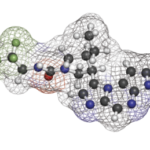The FDA has approved the use of secukinumab for pediatric patients with enthesitis-related arthritis and psoriatic arthritis, after research showed a longer time to disease flare than placebo.


The FDA has approved the use of secukinumab for pediatric patients with enthesitis-related arthritis and psoriatic arthritis, after research showed a longer time to disease flare than placebo.
In February A&R, Penso et al. reported on the results of their study, which explored whether patients with psoriasis, PsA and AS have a higher risk of developing IBD when treated with an IL-17 inhibitor compared with apremilast, a phosphodiesterase 4 (PDE4) inhibitor, or etanercept, a TNF inhibitor.
Matthew Phelan |
NEW YORK (Reuters Health)—Risankizumab, an inhibitor of interleukin (IL) 23, provides some relief for patients with active psoriatic arthritis (PsA) whose symptoms have responded poorly to standard treatments, according to 24-week results of a phase-3 trial. “Despite the range of available therapies for psoriatic arthritis, efficacious, well-tolerated therapeutic options are needed to treat the diverse…

At the ACR Convergence session CARE: Spondyloarthritis, Alexis Ogdie, MD, presented key principles of diagnosis & management of patients with spondyloarthritis.

Two experts described the measurements of disease activity used in axial spondyloarthritis and psoriatic arthritis and how rheumatologists can apply them in practice.

Ethan Craig, MD, MHS |
It feels like a long decade has passed since March 2020. At The Rheumatologist, we closed out 2020 with a special supplement on gout. Physician Editor Phil Seo, MD, MHS, kicked off that supplement with, “COVID-19. Black Lives Matter. A new gout guideline. These are some of the things 2020 ushered in. And we’re unlikely…

The use of objective, validated outcome measures to track progress in symptom control for patients with psoriatic arthritis was discussed in a session at the 2019 ACR/ARP Annual Meeting titled Optimizing Outcomes in Psoriatic Arthritis: A Domain-Based Strategy. In the years since this presentation, additional research has helped supply greater insights into this topic and…

We are fortunate to have clinical practice guidelines for the management of psoriasis and psoriatic arthritis (PsA) from multiple organizations to help navigate today’s rapidly evolving therapeutic landscape. We are further fortunate to have multiple specialists to manage these conditions: rheumatologists and dermatologists. However, multiple guidelines, multiple drugs and multiple specialists can create a paradox…

As treatments for psoriatic arthritis (PsA) emerge, a clinical trial comparing the Janus kinase (JAK) inhibitor upadacitinib and the tumor necrosis factor (TNF) inhibitor adalimumab provided some new insights. Published earlier this year in The New England Journal of Medicine, the SELECT-PsA 1, double-blind, phase 3 trial found that a 30 mg dose of upadacitinib…

Sarah D. Bayefsky, MD, Kimberly DeQuattro, MD, & Rebecca E. Sadun, MD, PhD |
Approximately 50% of young adult patients with childhood-onset rheumatic diseases become lost to follow-up within the first year of transferring to adult rheumatology care, mirroring the statistics of other subspecialties.1,2 One of the challenges cited most consistently by young adult patients and their families relates to differences between rheumatology care delivery in the pediatric and…